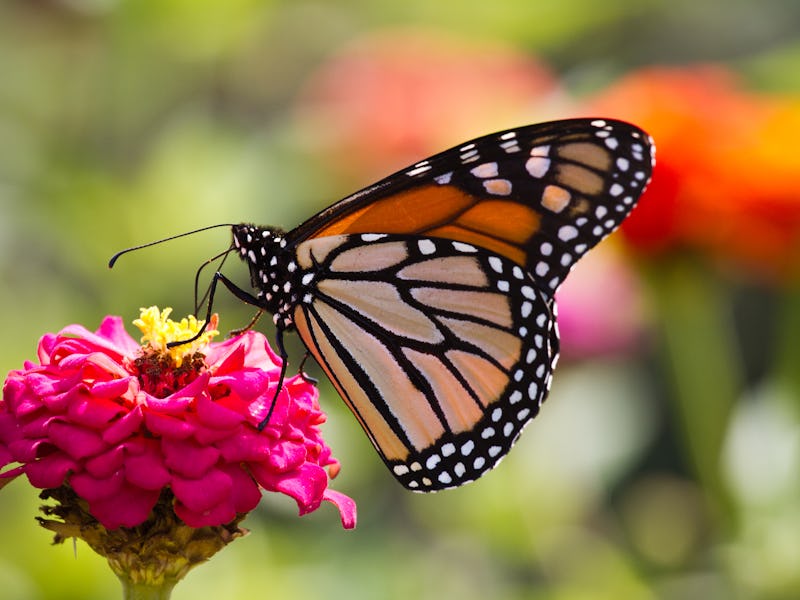Insect Die-Offs Could Cause 'Ecological Armageddon'
'Our grandchildren will inherit a profoundly impoverished world.'

Flying insects are crucial to maintaining healthy ecosystems and supporting human agriculture, and unless you’ve been living under a rock for the past decade, you know that they’re in trouble. But research suggests that the situation may be even worse than expected.
In a study published Wednesday in the journal PLOS One, a team of European researchers tracked flying insect biomass — the actual mass of all the insects in an area — over 27 years in 63 unique nature protection areas around Germany and found that insect biomass had declined by 76 to 82 percent over the 27 years of the study. The greatest losses occurred during the summer.
“Insects make up about two-thirds of all life on Earth. We appear to be making vast tracts of land inhospitable to most forms of life and are currently on course for ecological Armageddon,” says University of Sussex biologist Dave Goulson, one of the study’s authors, in a statement. “On current trajectory, our grandchildren will inherit a profoundly impoverished world.”
The gravity of this situation can not be overstated: Insects are dying at an alarming rate.
Yes, this is alarming, but why does it matter? It matters because insects don’t simply live their lives in isolation. They interact with their ecosystems just as humans do, whether we recognize it or not. Researchers have estimated that insects provide at least $57 billion in ecological services in the United States alone. They do this in some obvious ways, by pollinating the plants that produce the food we eat and by eating each other — for instance, dragonflies eat mosquitoes.
Insects also provide some ecological services that we might not always consider, like breaking down dead plants and animals to recycle their nutrients into the soil. And while we may be able to come up with some creative pollination solutions, the other roles that insects fill might not be so easy to replicate
Biodiversity, the variety of life in an ecosystem, is considered a measure of ecosystem health and resilience. Scientists all over the world have been concerned about shrinking biodiversity as species of vertebrates and invertebrates go extinct. This study shines a light on a different aspect of global life, though, by focusing on actual biomass, which the study’s authors say is more relevant to an ecosystem’s functions.
“The widespread insect biomass decline is alarming, ever more so as all traps were placed in protected areas that are meant to preserve ecosystem functions and biodiversity,” write the study’s authors. They emphasize that biomass loss in protected areas is especially alarming because it can — and likely will — cause cascading effects through ecosystems and across levels of the food chain.
“There is an urgent need to uncover the causes of this decline, its geographical extent, and to understand the ramifications of the decline for ecosystems and ecosystem services.”
Scientists have adapted an insane technology to stop the deadliest animal on Earth: the mosquito. Check out this video to find out more.